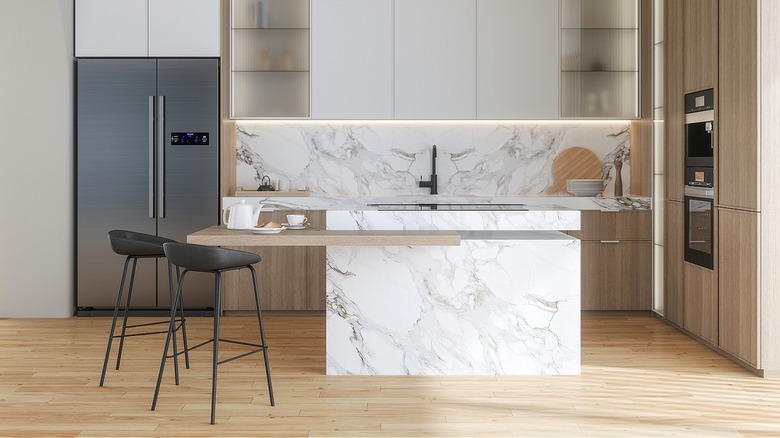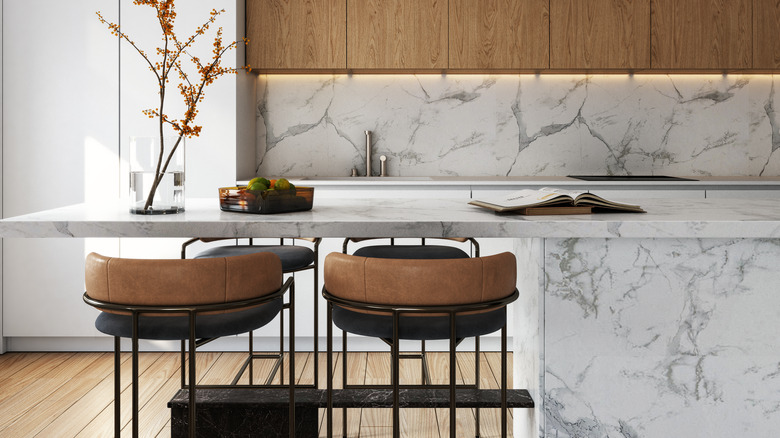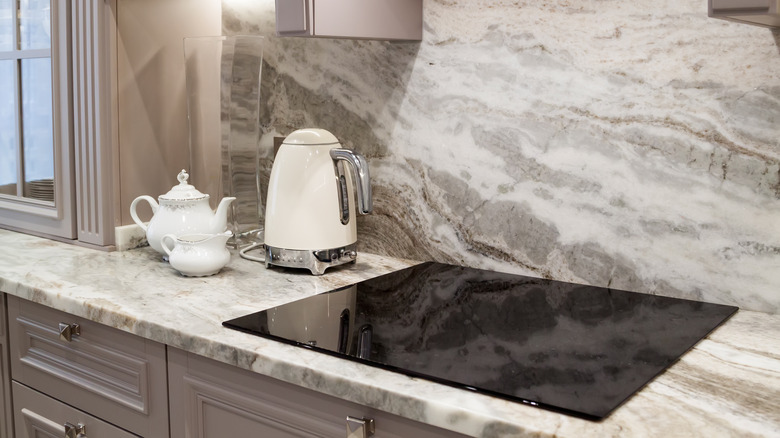Marble Countertops Can Be Beautiful But They Stain More Easily Than You Might Realize
If you're plugged into the interior design world, then you know marble countertops are having a major moment right now. It seems like every designer, celebrity, and influencer is indulging in veiny designs, from purple Calacatta marble to Rosa Portugués. But while marble makes a beautiful impression, it might not be the best countertop choice, especially if you like to cook a lot.
Marble is notoriously porous, meaning it absorbs stains much easier than its counterparts, like granite or quartz. If you like to cook and use and abuse your kitchen, then this might be too precious for your needs. A pasta sauce splatter can create a permanent blemish. Acidic drinks such as coffee or wine can leave behind embedded stains. Even water can leave blotches due to its mineral buildup.
But the worry doesn't end there. Marble is also soft, meaning that it can get scratched and etched very easily. That can be from a knife nick or a tray you put down too hard on the countertop. It takes a lot of maintenance to keep a marble countertop looking brand new, which might not be everyone's preference.
How to make it last
If you still love the look of marble and want to give it a try, then you need to know how to make it last. It's all about preventative measures. The best thing you can do is seal your marble countertop. This protective layer is made from either resin or wax, and it'll act as a barrier between the stone and your kitchen mishaps. While you can do this yourself, it's best to get a professional for a clean and foolproof finish. But even with the protectant, you're not guaranteed to protect your slab from stains. It just lowers the risk. In addition, you need to reseal the countertop once every three to five years for it to stay effective.
You also need to know how to clean marble properly to protect it from stains. That's because the wrong product can leave its own host of splotches. The main thing you want to avoid with a marble countertop is acid; that means bleach, vinegar, or Windex is a no-go. Instead, use water and soap. Add a few drops to a moist cloth, rub it into the countertop, and immediately rinse and dry.
What to use instead of marble
If marble sounds like too much of a hassle to have in the kitchen, then there are simpler countertop alternatives. One great pick is quartz, which is highly durable and non-porous, allowing it to withstand everything from quick microwave dinners to entire holiday menus. It's resistant to scratches, chips, and cracks, making it long-lasting, and it doesn't require sealing. It's easy to clean and maintain. All you need is either soap or a non-abrasive cleaning product.
Granite is another great contender. Like quartz, it's also resistant to stains and scratches. It's incredibly heat resistant, allowing you to put hot pots and pans directly on its surface. While granite is porous, it can be effectively sealed to minimize its stain risks. When correctly sealed, granite countertops will resist staining from everyday kitchen spills, such as coffee, wine, and oil, unlike marble. Both quartz and granite are excellent alternatives — it just depends on which one is more suitable for your kitchen aesthetic and wallet.


